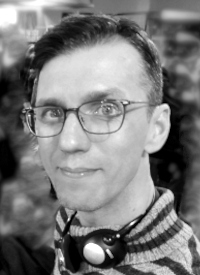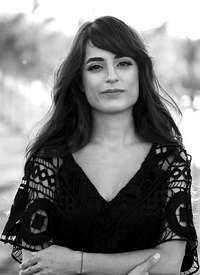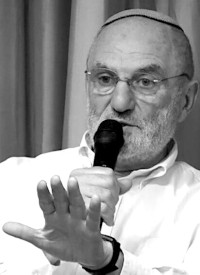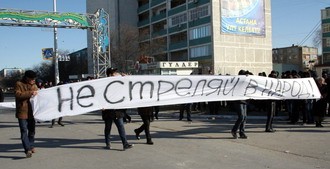
What is happening now in Kazakhstan – a popular uprising or another "color revolution"? This issue is actively discussed at the moment among users of Ukrainian social networks.
Despite all the differences, we are very similar in our social, economic and political systems – Ukraine, Kazakhstan, Georgia, Armenia, Russia, Belarus. After all, we all came out of one overcoat of the former USSR. That is why we rightly compare the crisis processes in our countries.
All "Maidans" -- that is, large-scale protests that took place in our countries -- had different triggers, but they were always due to the same social reasons. Because so many active people will not go out to protest for cookies.
The first Kazakh workers' "Maidan" in 2011 in Zhanaozen, the city that became the epicenter of today's explosion, also had social reasons.
The foundations of all "Maidans" in our countries have always been deep contradictions between the capital that has merged with the state power on the one hand, and the mass of social groups exploited by it on the other.
The problem of all the "Maidans" that arise objectively -- whether someone wants it or not -- is that they are used by members of the ruling class for their own needs.
Maidans turn into "color revolutions" when they change the president's name without changing the reasons for the protests. That is, without changing the bankrupt social system of capitalism.
The result of these inter-elite chess moves is the strengthening of the omnipotence of national and transnational capital, the strengthening of the authoritarian regime (only with another figurehead), the suppression of civil liberties, more IMF bondage, and the final loss of independence for the country.
A striking and sad example of this development is Ukraine after 2014.
However, in reality, another result is possible, when the Maidan will not only change the president and the government, but will eventually change the social system and overthrow the capitalist system. That is, the root causes of social protest will be removed.
It all depends on who will shape the agenda of the protest movement.
In Ukraine in 2014, or in Belarusin 2020, the agenda was shaped by the local nationalist and neoliberal bourgeoisie, far-right and Western-dependent "grant eaters." And now in Kazakhstan, the pro-Western opposition is talking about two ways that protests can go:
“The country can go along two paths: revolution (topple and put everyone in jail) or urgent reforms -- political and economic,” it states in social networks.
Surely, Kazakh grant-eaters want the latter path out of the dilemma: “The second legitimate path requires the dissolution of parliament, the dissolution of the ruling Nur Otan party, the deprivation of all immunities of [former president] Nazarbayev and his family members, rapid political reforms by presidential decrees, registration of opposition parties and the organization of parliamentary elections on a 50/50 basis. Then we need to carry out a constitutional reform.”
In fact, this plan offers the Kazakhs a redistribution of power without any social change. That, in fact, is what happened during the events in Ukraine.
The way things will really go in Kazakhstan depends on whether the workers of Zhanaozen and other Kazakh cities shot down in 2011 can unite. Will they be able to create a left-wing political entity and develop their own social program, avoiding the influence of the right-wing "opposition"? This is very important, but, as we understand, it is very difficult.
However, there is no other way out. Capitalist exploitation and "market reforms" are the real causes of the Kazakh "Maidan." And its goal should be to eliminate these factors, not the redistribution of power between financial and political groups.
Everything that is happening in Kazakhstan today has direct analogies in Ukraine and other post-Soviet countries. And since social problems in Ukraine have not disappeared, but only intensified during the post-Maidan regime, we are also facing new popular uprisings.
Like it or not, the "Maidan" will objectively arise -- because neither the parliamentary way nor elections can solve social contradictions.
The main thing is that it must be a social Maidan -- a social revolution, which cannot be confused with its political imitations in the interests of the imperialists and oligarchs.
We cannot go on living as we do today. But we don’t need market reforms, we need social change.
By Vladimir Chemeris
Translated by Greg Butterfield
-
Історія
Африка и немцы - история колонизации Намибии
Илья Деревянко история колонизации Намибии>> -
Економіка
Уолл-стрит рассчитывает на прибыли от войны
Илай Клифтон Спрос растет>> -
Антифашизм
Комплекс Бандеры. Фашисты: история, функции, сети
Junge Welt Против ревизионизма>> -
Історія
«Красная скала». Камни истории и флаги войны
Андрій Манчук Создатели конфликта>>

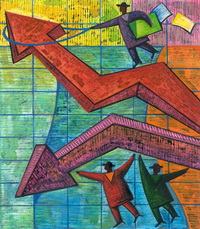
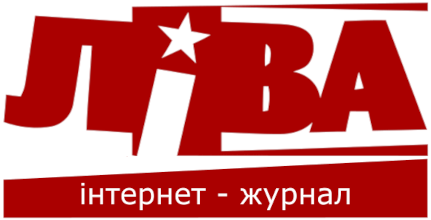










 RSS
RSS
